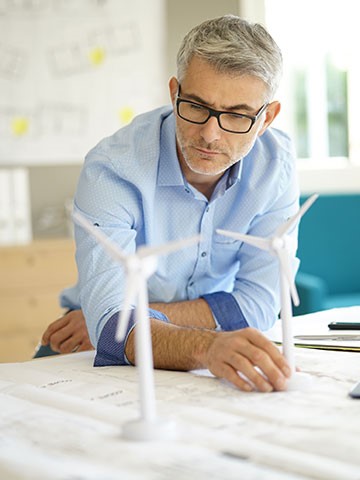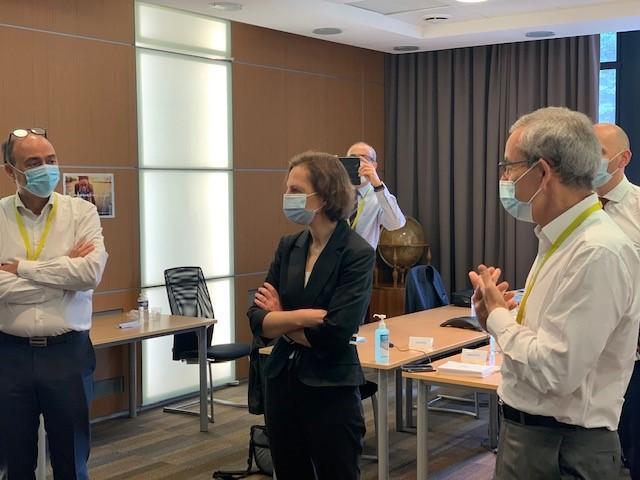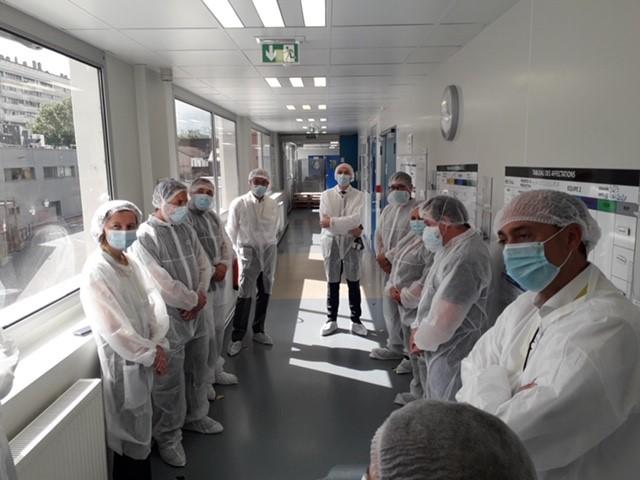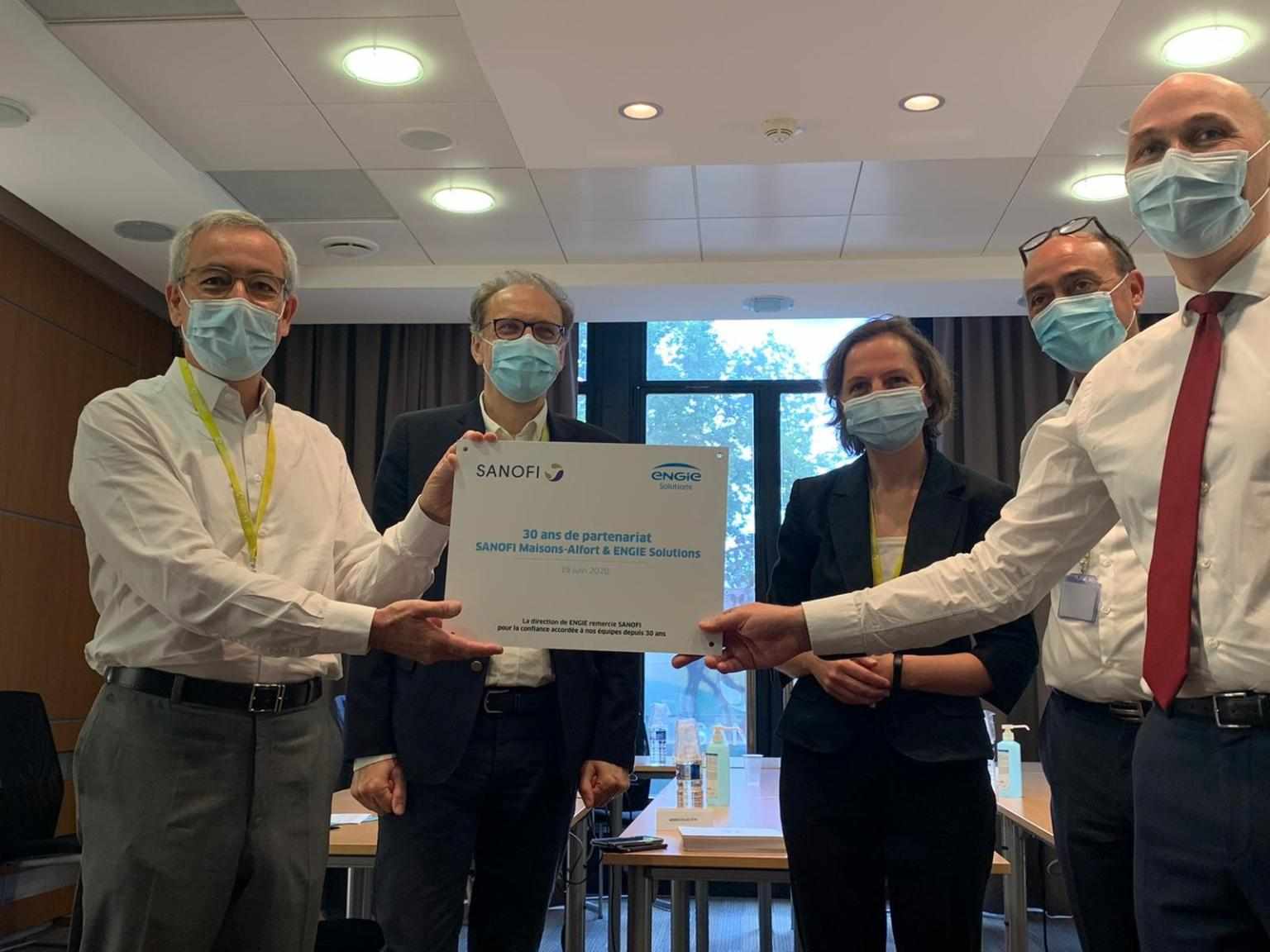“This crisis has disrupted economic balances and dynamics in an unprecedented way. It was crucial for us to make contact with our customers very quickly, so that we could keep pace with their changing expectations. We were imagining things that sometimes no longer corresponded to the reality of some of our customers. On the other hand, they were expecting us to come up with other solutions that we hadn’t thought of. We understood that it was absolutely necessary to maintain this proximity because their demands were changing as quickly as the situation, which was itself very different from one market to another. We needed an approach that was both global and based on local feedback through the Business Units,” explains Isabelle Fondimare, Promotion & Marketing Director of the Customer Solutions Global Business Line.
Customer centricity, the first driver of a green recovery
By ENGIE - 01 July 2020 - 18:00
In an economic context that has been severely hit by the public health crisis, ENGIE is supporting its customers’ business recovery. How can we help them make their economic recovery a source of new challenges in terms of resilience and flexibility while remaining compatible with low-carbon growth? ENGIE has re-thought its customer-centric culture and has decided to speed it up. After taking action to respond to the challenges of the emergency, our teams have stepped up their efforts to listen to our customers and adapt our offerings to co-construct the solutions of tomorrow’s world.
Around the world, 120,000 ENGIE employees are Customer Solutions specialists, providing the Group with a unique network capable of anticipating the needs and expectations of our customers.
To meet the new challenges that have emerged during the Covid-19 crisis, the Group has mobilized all its teams in contact with customers to ensure the continuity and then the resumption of activities. Our customer-centric approach is already firmly rooted in ENGIE’s culture, but it has now gained momentum in the crisis and post-crisis context.
ENGIE has reacted at several levels:
1- Ensuring continuity of service in the urgency of the crisis
On March 11, the WHO declared a pandemic. Immediately, and according to the Group’s geographies, we adapted our activities to local public health policies and were thus able to pursue our essential missions to ensure continuity of service.
2 - Helping our customers as they re-start their businesses
Aware of the role they had to play, ENGIE’s teams took action to support their customers throughout the Covid-19 crisis and to enable them to restart their activities in compliance with health regulations. This effort was praised and supported by Jean-Pierre Clamadieu and Claire Waysand, who visited HSBC and then Sanofi to meet customers and thank the teams.
The Group has worked on restarting post-lockdown activities with the objective of providing the necessary health conditions to resume activity as soon as possible. This is particularly the case for projects that had been halted or severely slowed down because of the crisis. Jean-Pierre Clamadieu, Chairman of the Board of Directors, and Claire Waysand, Acting CEO of ENGIE, were able to observe the measures implemented in the field, particularly during visits to two sites, the future headquarters of the HSBC bank in Paris and the Sanofi plant in Maisons-Alfort.
Future HSBC headquarters in Paris, France
On the site of HSBC’s future Paris headquarters, ENGIE Solutions teams have been carrying out HVAC (heating, ventilation and air conditioning) and electrical works since 2019. The lockdown period cut down the number of personnel present on site by a factor of four. Strict safety protocols were also put in place: controlled access to the site, premises cleaned every three hours, security rounds regularly checking that workers were complying with preventive measures, and circuits put in place to prevent too many people from passing each other.
Sanofi plant in Maisons-Alfort, France
We have worked with Sanofi for 30 years and are meeting many challenges on this site. The visit was an opportunity to look at the adaptation and continuity of service that has been provided over the duration of the lockdown as well as the necessary changes put in place to ensure the safe return of the teams.
3 - Remotely co-constructing robust solutions
As the easing of lockdown restrictions continues in many parts of the world, ENGIE continues to adapt to the situation by seeking to identify its customers’ new needs.
Listening to our customers to better support them

ENGIE Solutions surveyed more than 100 of its customers in France. How can we support them by combining economic recovery and environmental performance? How can we best succeed in developing digital solutions adapted to the decarbonization of activities? From April onwards, the responses from customers made it possible to anticipate the needs related to the easing of lockdown and to assist them in adapting their activities to health constraints.

On a worldwide level, ENGIE Impact has helped the Group’s customers cope with their situation. This ENGIE entity supports companies and local authorities in their transformation to a sustainable model. It has, for example, offered them remote energy audit programs, a way of responding to a strong demand for very short-term savings while offering them the opportunity to reduce their carbon emissions.
Adapted offers for new needs
A process of identification of new needs has been organized at a global level to implement initiatives in the field and to ensure the sharing of best practices that have emerged at a local level, in the Business Units.
With the Customer Solutions Business Line and the Global Industrial Hub, a global approach to exchanges with customers has been initiated. The aim has been to go and meet our customers to explore their expectations and their needs in exploratory interviews. This approach has been undertaken with customers in France and the United Kingdom in particular. The results were then shared in a virtual bootcamp, which brought together 250 professionals from all our Business Units around the world.
Organized in the midst of the public health crisis, and at a time when travel was prohibited, the bootcamp was divided into two parts.
- The first part was devoted to a vast brainstorming to gather trends and share our knowledge and issues relating to our customers.
- The second part, again remote, was devoted to the construction of integrated offers adapted to the post-lockdown context. To complete the co-construction of these offers, test customer interviews will be carried out by the Business Units in order to improve the solutions developed during this special bootcamp.
Offers for the world of tomorrow
When the bootcamp’s work was finished, the offers adapted to the post-crisis environment that emerged were organized according to three main themes:
- Energy efficiency
- Green energy
- Transformation of our living and working spaces
ENGIE’s expertise in energy efficiency, the transition to carbon neutrality, energy production at our customers’ sites, energy-related services (heating, air conditioning, lighting, connectivity), and electric vehicle charging stations, backed up by digital solutions, has enabled the teams in our Customer Solutions Business Line to anticipate and to innovate, offering businesses robust, low-carbon solutions.
For the tourism sector, and particularly for our customers in the hotel sector in Asia who have been hit hard by the public health crisis, ENGIE has proposed energy efficiency solutions. The idea is to optimize the period of inactivity and enable our customers to generate energy savings when they restart.
Similarly, ENGIE is also offering IoT solutions to improve air quality and reduce the risks of virus transmission. A similar offer has been set up worldwide for airports, which have been hard hit by the crisis. Such offers as passenger flow management, baggage decontamination and PPE kits will ensure the strictest sanitary conditions for the resumption of activities.
In France, ENGIE Solutions has also responded to its customers’ new health-related requirements with its “Healthy Building” offer. For example, using its digital know-how, the Group has developed digital tools to visualize in real time the filling of hand sanitizer in dispensers even before the end of lockdown. “Predity, our digital ecosystem, which already incorporates a large number of tools, will enable us to integrate these services very quickly and industrialize them,” explains Yann Marvin, Operational Digital Director at ENGIE Solutions.
4- Sharing our vision of the world of tomorrow to help our customers
How can we analyse the lessons of the crisis in order to better think about tomorrow's world?
To identify and understand its customers’ challenges, ENGIE is offering them its expertise and vision of tomorrow’s world. For cities in 2030 and for the key sectors of our customers, such as healthcare and urban development, how can we analyze the lessons of the crisis to have a clearer idea of what tomorrow’s world will look like? ENGIE is positioned as a privileged partner for the phase of recovery and reinvention.
In a series of podcasts released over the summer, ENGIE Solutions experts will present developments in major sectors such as healthcare, construction and distribution. In one of the first episodes, Stéphane Grout, Health Market Director, explores the territorial, economic and even ecological changes impacting the health sector in France and its major institutions.
ENGIE asked Tractebel ENGIE, an entity specializing in engineering, to carry out a global study showing the major dynamics that will shape the urban landscape by 2030, taking account of demographics, environment, technologies, urban space, etc. The quantitative data and the mapping of the various risks and opportunities will enable the city’s stakeholders to plan ahead for the implementation of appropriate solutions.




